Essential Skill: The Pivot Slip
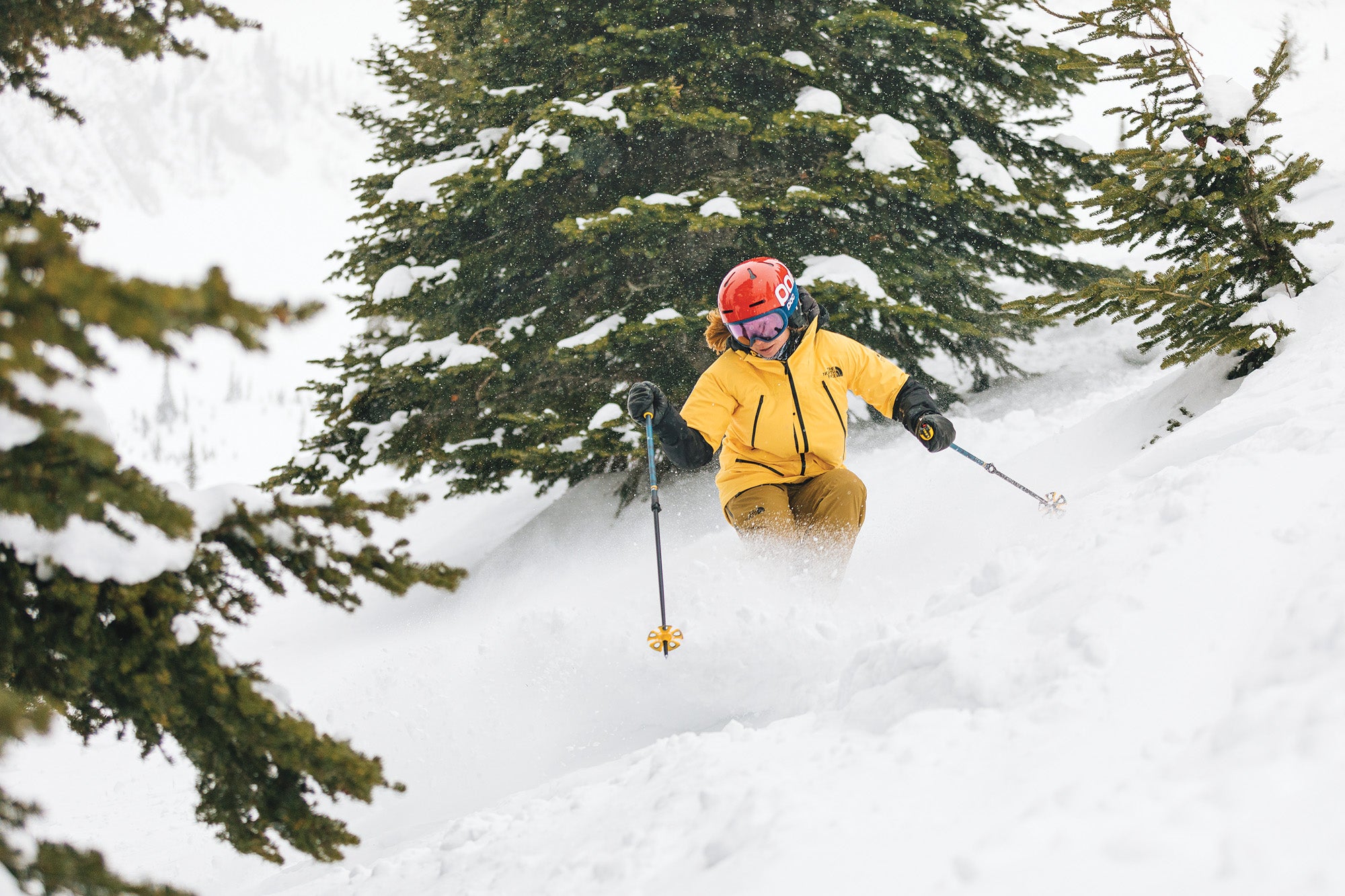
Photo credit: Alton Richardson
Skiing in the trees is about as surreal an experience you can get on snow—when you enter a gladed run, you’re suddenly transported into a silent, serene world. One of the best aspects of tree skiing is the lack of other skiers, but there’s a reason so few venture into the trees. Tree runs make up some of the most challenging terrain on the hill because they are unpredictable in nature, testing skiers’ ability to turn where and when the trees dictate. But don’t let this keep you out of the trees—learn how to change directions on the fly with a pivot slip.
Tree Skiing: Common Problem
When tree spacing gets tight, you tend to get going too fast and struggle to make a turn quickly enough.
The Solution
Use a pivot slip to shed speed yet maintain momentum. A pivot slip consists of a pivot and a slip, maneuvering skis 180 degrees across the hill and sliding downhill within a narrow corridor (think slow-motion hockey stop). This move allows you to complete turns in tight places without coming to a full stop between turns.
How to Perform Pivot Slip
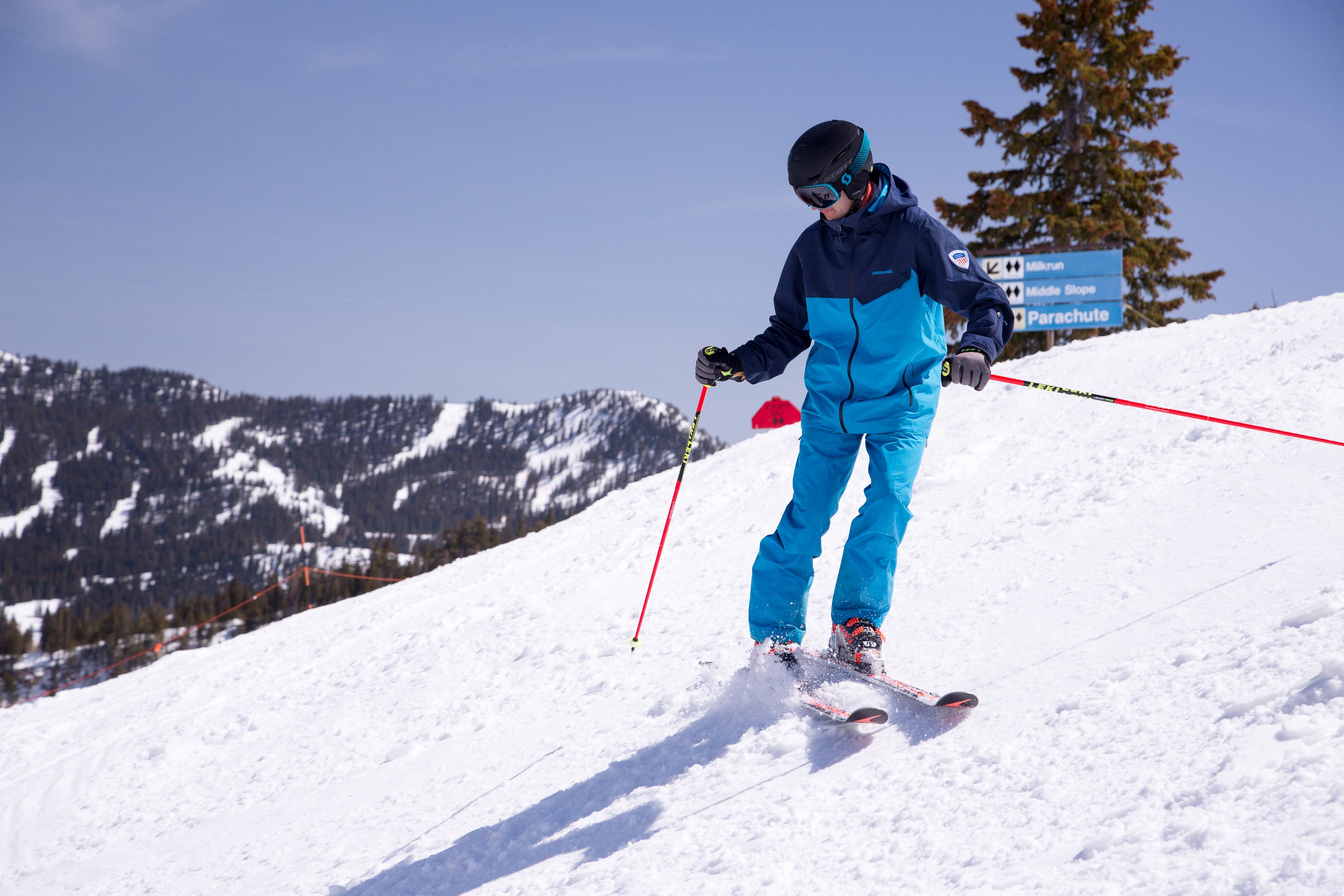
- Keep shoulders and grip of uphill pole facing downhill as you flatten your skis to side-slip down the fall line. Have a pole plant ready to help stabilize the body so you can use just your legs to turn your skis.
- Extend legs and center weight over skis as you point ski tips into the fall line.
- Quickly pivot your skis to face the opposite direction of your starting position. Flatten skis to continue side-slipping down the fall line. Flex your legs to absorb inconsistencies in the snow. Keep shoulders facing downhill and ready your next pole plant.
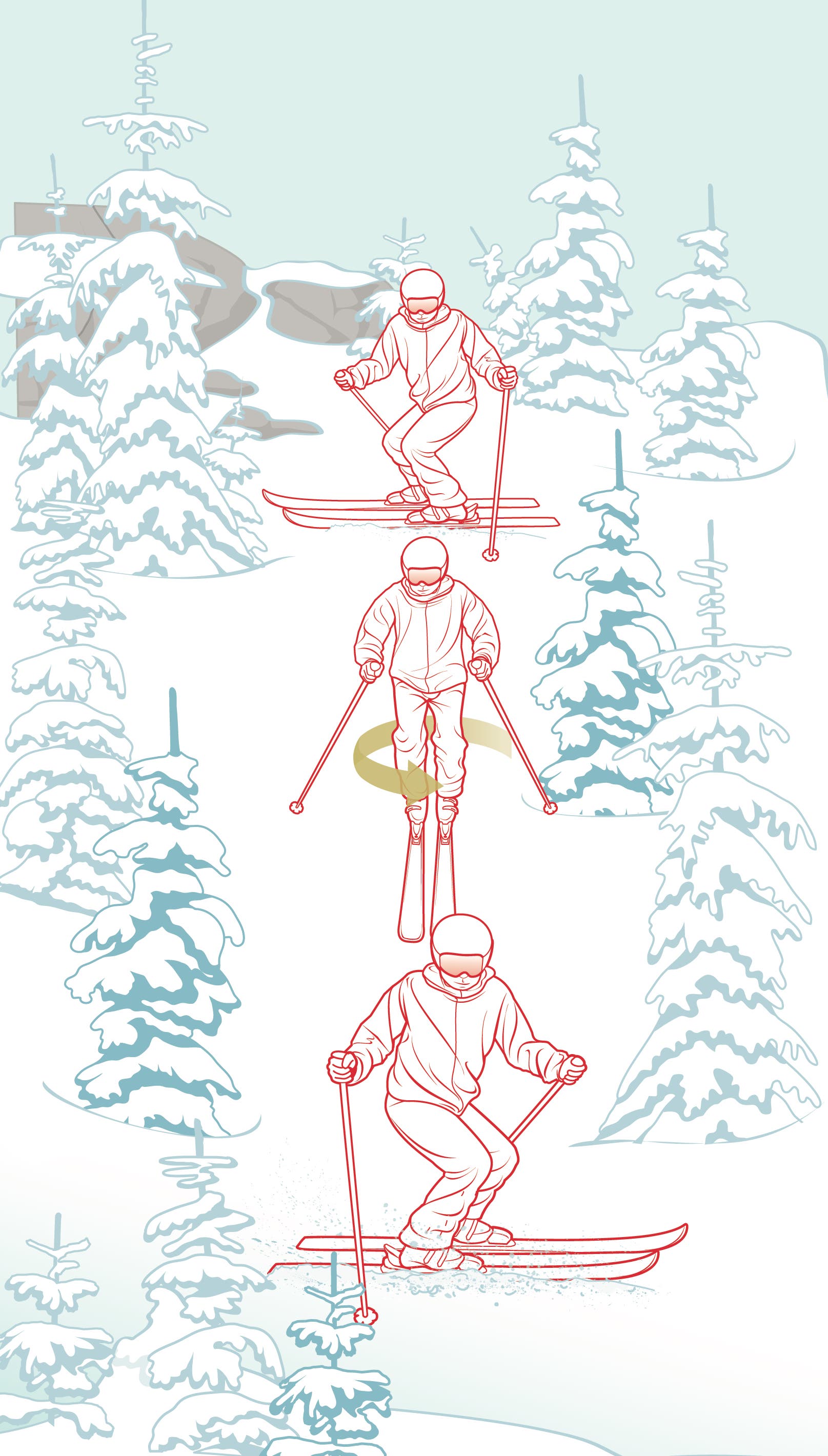
Drills and Practice
Practice pivot slips on a variety of terrain. First, get the hang of slipping straight down the hill within a narrow corridor without changing the direction of your skis. Once you master this, practice sliding on alternate sides by pivoting skis 180 degrees. The key is to be able to make pivots at the speed you decide. Some tight spaces require a quick pivot, while others require you to be able to slow your pivot rate.
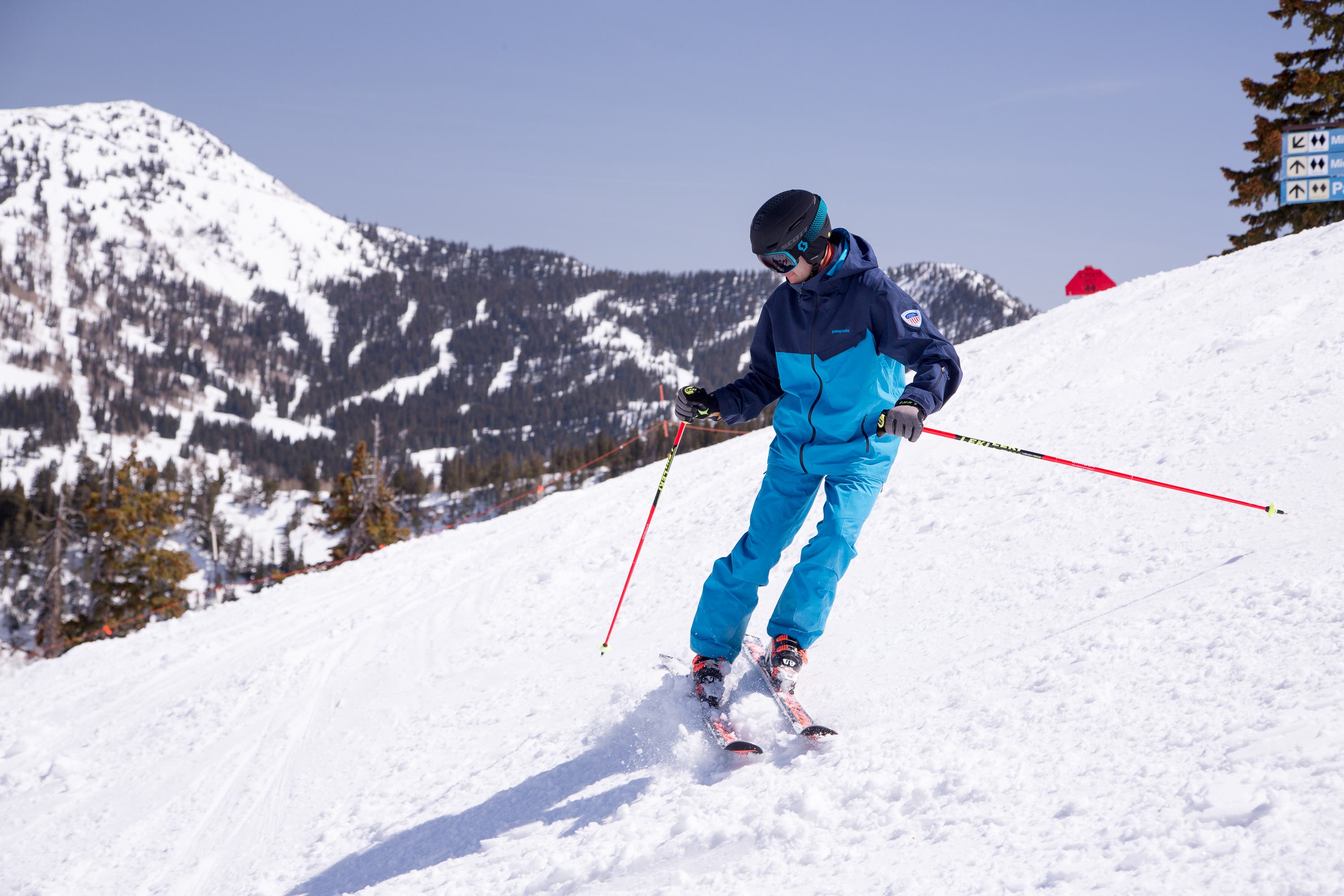
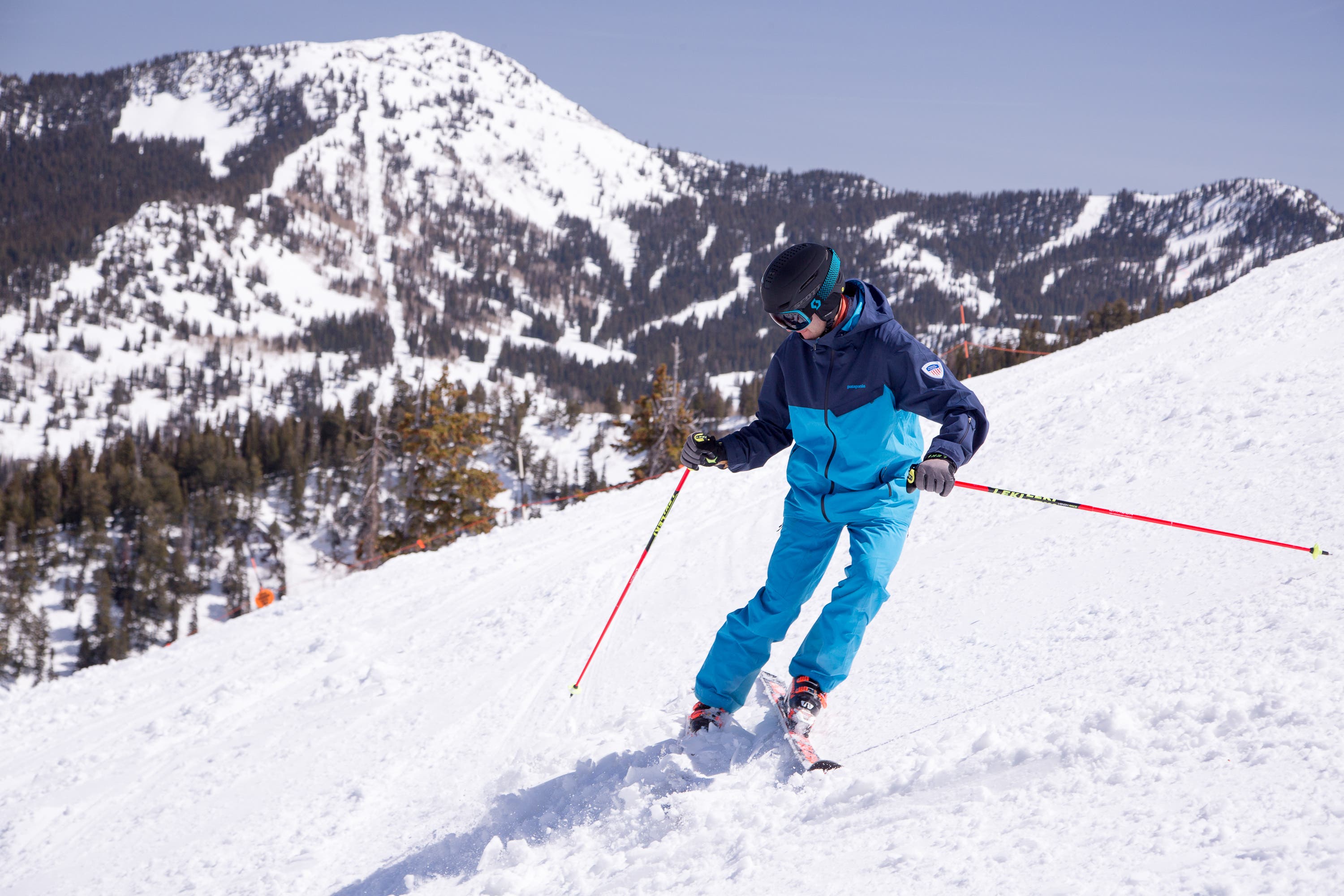
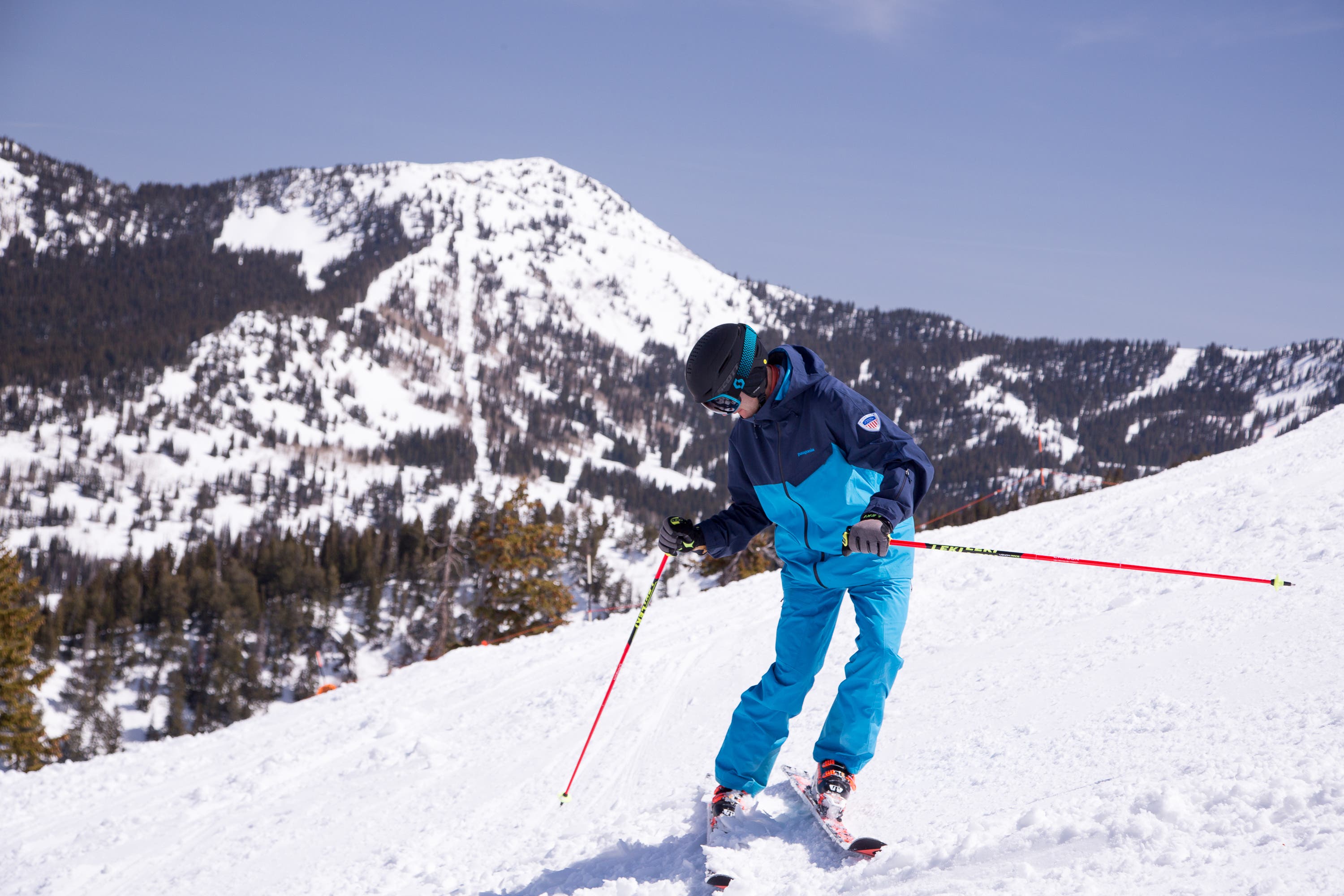
Looking for more tips on how to tackle tree skiing? Enroll in SKI’s online course Find Your Line: How to Ski Trees, shot on location at Fernie Alpine Resort, B.C., to learn how to ski in harmony with the glades. With the guidance of pro skier Daron Rahlves and pro ski instructor Jennifer Weier, you’ll learn how to build your skill set and vastly expand the terrain accessible to you on the mountain. Learn more and sign up today.
Bonus Video: Preparing for Tree Skiing Without Trees
Video not displaying correctly? Watch it here.
More Tree Skiing Videos: Find Your Line Playlist
Learn More About SKI’s Online Course: Find Your Line
Athlete Profile: Daron Rahlves